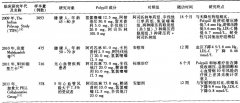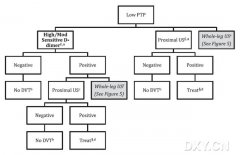读医学网
2013年美国神经学会缺血性脑血管病抗栓塞药物的应用循证依据指南
发布时间:2014-05-19 10:35 类别:神经系统疾病 标签:aspirin continue routinely ocular 来源:丁香园
To assess evidence regarding periprocedural management of antithrombotic drugs in patients with ischemic cerebrovascular disease. The complete guideline on which this summary is based is available as an online data supplement to this article.
Clinicians managing antithrombotic medications periprocedurally must weigh bleeding risks from drug continuation against thromboembolic risks from discontinuation. Stroke patients undergoing dental procedures should routinely continue aspirin (Level A). Stroke patients undergoing invasive ocular anesthesia, cataract surgery, dermatologic procedures, transrectal ultrasound–guided prostate biopsy, spinal/epidural procedures, and carpal tunnel surgery should probably continue aspirin (Level B).
Some stroke patients undergoing vitreoretinal surgery, EMG, transbronchial lung biopsy, colonoscopic polypectomy, upper endoscopy and biopsy/sphincterotomy, and abdominal ultrasound–guided biopsies should possibly continue aspirin (Level C).
Stroke patients requiring warfarin should routinely continue it when undergoing dental procedures (Level A) and probably continue it for dermatologic procedures (Level B). Some patients undergoing EMG, prostate procedures, inguinal herniorrhaphy, and endothermal ablation of the great saphenous vein should possibly continue warfarin (Level C). Whereas neurologists should counsel that warfarin probably does not increase clinically important bleeding with ocular anesthesia (Level B), other ophthalmologic studies lack the statistical precision to make recommendations (Level U).
Neurologists should counsel that warfarin might increase bleeding with colonoscopic polypectomy (Level C). There is insufficient evidence to support or refute periprocedural heparin bridging therapy to reduce thromboembolic events in chronically anticoagulated patients (Level U). Neurologists should counsel that bridging therapy is probably associated with increased bleeding risks as compared with warfarin cessation (Level B). The risk difference as compared with continuing warfarin is unknown (Level U).




